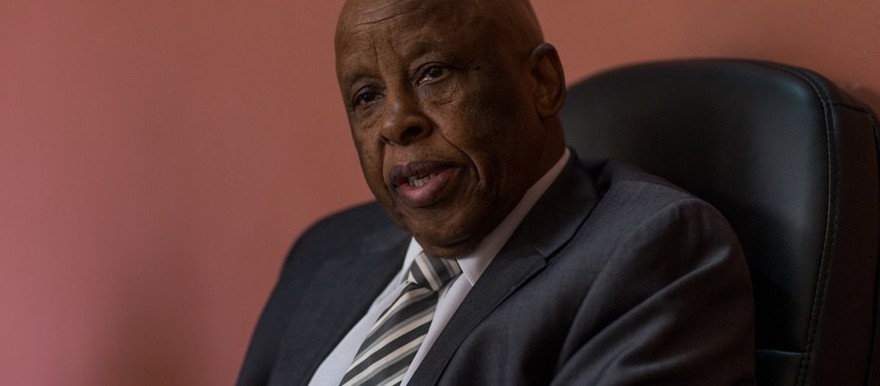The head of the Joint Monitoring and Evaluation Commission, Festus Mogae, has called for the warring parties in South Sudan not to carry out military offensives saying he is “dismayed” at the absence of progress in restoring the ceasefire.
Mogae, the former president of Botswana, has been tasked by the African Union and East African regional bloc IGAD with helping restore peace in South Sudan. He says that he receives “almost daily” reports of violence from around the country as he oversees teams of ceasefire monitors working alongside UN peacekeepers.
In a speech to the Joint Monitoring and Evaluation Commission (JMEC) today in Juba he referred to “warnings of mass killings” and to ongoing fighting as well as the possibility of even more severe violence.
High-level government officials have been speaking openly about plans for offensive operations this dry season for several weeks now. Some rebel officials have also indicated plans to launch attacks to topple the government.
Mogae in his speech implied that such a military offensive is a possibility but he did not comment more specifically.
He said, “The only offensive South Sudan needs right now is a Peace Offensive. A nationwide campaign of visits and speeches, standing side by side with civil society leaders and speaking words of togetherness, forgiveness, and a unified future.”
He noted, however, that there is a “rise in inflammatory rhetoric, which carries the potential for wider violent ethno-centric conflict.”
“Numerous clashes between IO [rebel] and IG [government] forces and other armed groups continue almost daily across Western Bahr El-Ghazal, Upper Nile, and Unity States,” Mogae explained, also referring to clashes in the Equatoria region.
One of his proposals is for the top leadership of South Sudan to speak publicly about peace. “We urge all Parties, and most particularly the TGoNU, to demonstrate leadership and campaign for peace confidently. I appeal to the President of the Republic of South Sudan and the TGoNU to assume a higher profile and a more visible stance in propagating peace among all communities and citizens of South Sudan,” he said.
Such a move would be unprecedented, however. President Salva Kiir has never visited one of the protection sites where mostly ethnic Nuers, Shilluks and Fertit are sheltering from his forces. He has repeatedly referred to the civilians living there as rebels. Government security have also shut down various civil society and peace-building efforts, including a chiefs’ conference earlier this year.
Mogae stressed, “The voice and contribution of faith based leaders, women, Elders, private sector, civil society and youth cannot be understated. Their voice must be heard without fear of oppression or constraint.” But he referred to recent closures of media houses and intimidations as challenges in bringing out voices of peace.




